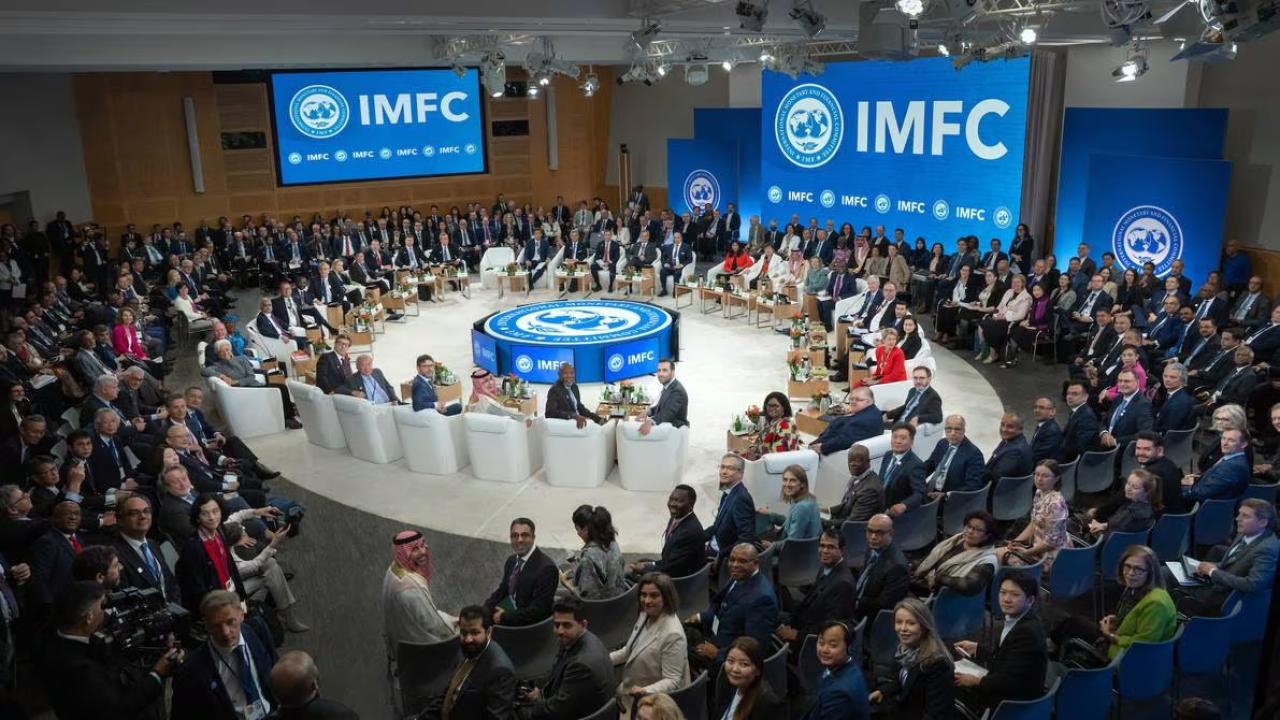
Fuel subsidies will be more targeted with protection for the most vulnerable, as stated in the plan and, “if necessary, adopt any additional measures.”
One of the priorities of the Government of Daniel Noboa in Ecuador is to make fuel subsidies more targeted, but at the same time guarantee an adequate social protection mechanism for the most vulnerable.
In addition, a plan to rationalize inefficient expenses and tax exemptions, catch up on arrears and with the Ecuadorian Social Security Institute (IESS). It is all part of Ecuador's commitment to protecting its macroeconomic stability and for which it reached an agreement with the International Monetary Fund (IMF).
The letter of intent and outline of what the Noboa Government will do for that objective is public and states that “if necessary, the Government is willing to adopt any additional measures that may be necessary to achieve the objectives of our program” and, on the other hand, “ensure that the burden of fiscal consolidation does not fall on the poor and vulnerable.”
The agreement with the IMF for US$4 billion approved on May 31 seeks to strengthen fiscal sustainability, while protecting vulnerable groups; rebuild fiscal and external reserves; safeguard dollarization and macroeconomic stability; improve financial stability and integrity; and continue the structural reform process to unlock the potential of the economy, as detailed in the information published by the Fund on its portal.
The Ecuadorian Government states that its fiscal policy will continue to be guided by the principle of strengthening the sustainability of public finances and reducing public debt.
On the revenue side, he expects the measures already taken such as the increase in value added tax (VAT) from 12% to 15% and the temporary contributions imposed on companies to contribute around 2% of GDP in additional revenue.
“We are committed to restraining current spending, supported by keeping wages and goods and services broadly constant in real terms, while protecting space to address the security crisis and meet urgent social and investment needs.”
On non-oil revenues, it is planned to rationalize inefficient expenditures and tax exemptions: a plan to mobilize non-oil revenues in the medium term will be prepared and shared with IMF technical staff, this is expected by mid-November 2024.
And regarding oil revenues, it is indicated that “most (fuel) subsidies benefit many who do not need the support, encourage excessive consumption of fossil fuels, undermine the energy transition, damage the environment and give rise to corruption and smuggling, benefiting informal mining activities and drug trafficking.
“As we announced in January, one of the administration's priorities is to make fuel subsidies more targeted, while ensuring an adequate social protection mechanism for the most vulnerable.”
This area of protection is to expand the coverage of social protection programs to 47,000 additional families per year.
As of March 2024, there are 1.2 million family units in the three lowest income deciles that already benefit from transfers.
In this way, the regime wants to ensure that almost all families in the two income deciles and most families in the third income decile are covered by protection at the end of the IMF-supported program.
The Expanded Service Agreement (SAF) will last 48 months and will represent financial support of US$4 billion, of which the country will receive US$1 billion immediately.
Another commitment is to contain the public sector and limit increases in staff and salaries.
The strategy will be carefully crafted to ensure the delivery of quality public services and the necessary recruitment of additional police personnel and national security forces to counter the security crisis. And advance a mechanism to settle IESS health care claims.
“This will provide legal predictability to the audit process and the settlement of verified obligations. To this end, we will establish an updated agreement between the parties: Ministry of Economy and Finance and Social Security, on the transfer of health obligations (both internal and external, suppliers), based on the December 2022 agreement.
Furthermore, it indicates that the resulting agreement will be applied to avoid future delays in obligations, improve the reliability of budget statistics and reinforce the sustainability of the IESS.
“Based on the updated agreement between the ministry and the IESS, we plan to start the tender for the acquisition of the external auditor who will review the 2023 and 2024 health obligations with the IESS,” which is expected for the end of December.
PUBLIC COMPANIES AND PETROECUADOR
- For the agreement with the IMF, Ecuador indicates that it will continue to improve the efficiency of state companies, which at this time seven public companies that were not managed efficiently are in the process of closure.
In the case of those that will remain in operation, “they commit to strengthening their operational framework, applying best practices to improve efficiency and limiting contingent liabilities to the budget.”
- Petroecuador's financial audits are underway. “In January we hired a top-level independent audit firm, with the support of the IDB. The audits, as anticipated during the program that concluded in 2022, will cover the following aspects: the 2019 and 2020 financial statements of Petroecuador and Petroamazonas (now merged into Petroecuador) and the 2021 financial statements. We plan to complete and share with technical staff from the IMF the results of the 2019 and 2020 audits (March 2025). We will gradually address any issues identified in audits in the future.”









